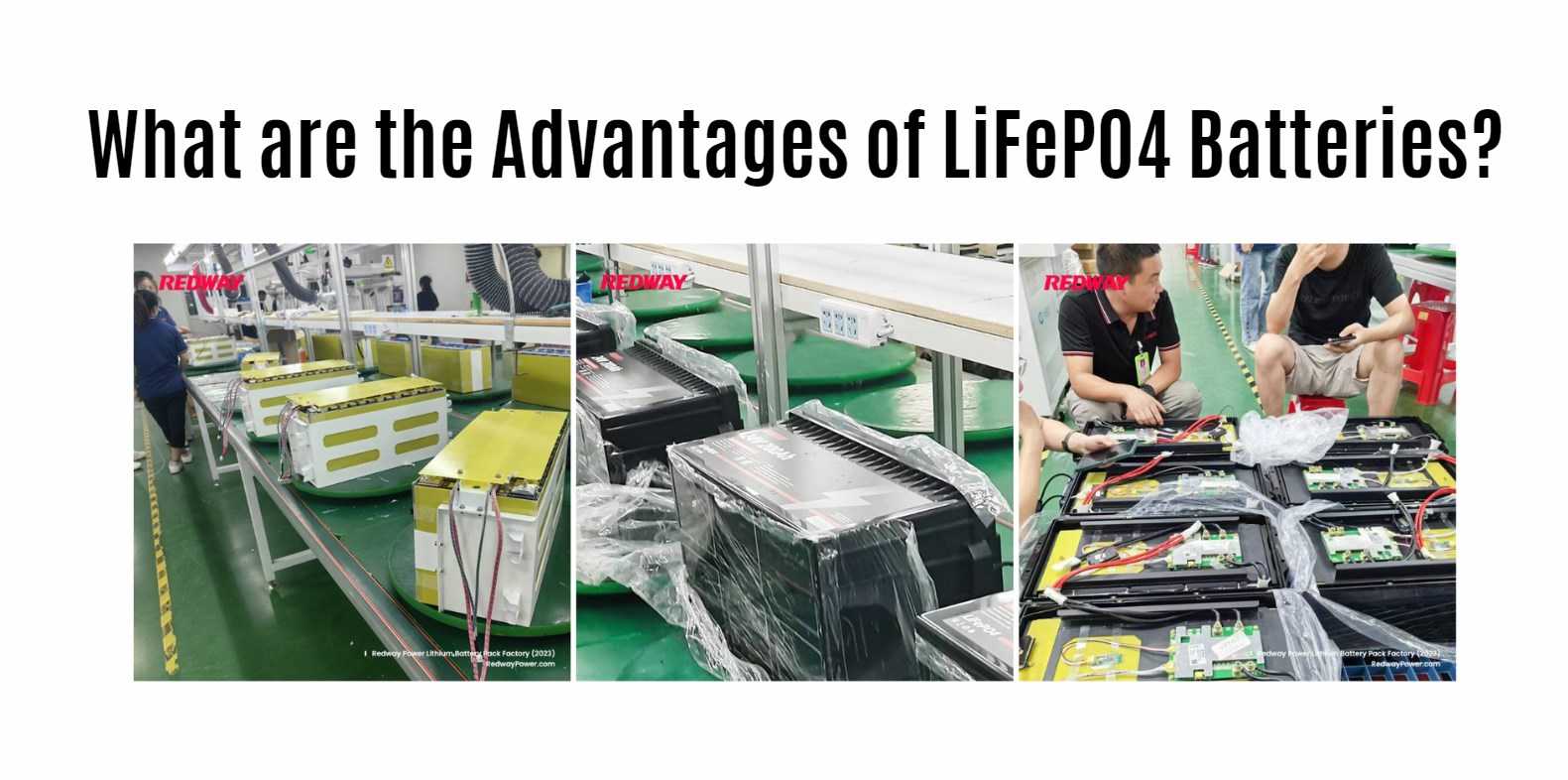Discover Lithium Iron Phosphate (LiFePO4) batteries, prized for safety, longevity, and efficiency. Learn about manufacturing and choosing the right battery for your needs. Explore advantages like reliability and drawbacks such as lower energy density. Recognize reputable manufacturers like CATL, BYD, and SimpliPhi Power. Select the ideal LiFePO4 battery for your project with strategic considerations.
What is a Lithium Iron Phosphate (LiFePO4) Battery?
Explore the exceptional features of Lithium Iron Phosphate (LiFePO4) batteries. With a cathode material of iron phosphate, these batteries stand out for their safety, extended lifespan, and impressive efficiency. Discover the unique advantages that make LiFePO4 batteries a top choice in the world of rechargeable energy solutions.
- Safety First: Unlike conventional lithium-ion batteries, LiFePO4 batteries prioritize safety, significantly reducing the risk of overheating and thermal runaway. This makes them a reliable choice for applications where safety is paramount.
- Longevity Matters: Enjoy a prolonged battery life with LiFePO4 technology. These batteries can undergo hundreds or even thousands of charge cycles, ensuring a cost-effective and durable energy storage solution.
- Efficiency at Its Best: Experience high efficiency and fast charging capabilities with LiFePO4 batteries. With proper care, these customized energy storage solutions provide reliable power for an extended period, making them an excellent investment for long-term use.
How are LiFePO4 Batteries Made?
Discover the intricate layers that make Lithium Iron Phosphate (LiFePO4) batteries a reliable power source. The cathode, crafted from lithium iron phosphate powder and conductive carbon additives, forms the positive charge. Meanwhile, the anode, composed of graphite or carbon-based materials, creates the negative charge. Separating these layers is a crucial separator material, allowing ion flow while preventing direct contact. Encased in metal with electrical contacts, LiFePO4 batteries undergo rigorous testing for quality assurance before reaching customers worldwide.
Wholesale lithium golf cart batteries with 10-year life? Check here.
- Cathode Powerhouse: The initial layer, the cathode, stands strong with lithium iron phosphate and conductive carbon, providing the essential positive charge for LiFePO4 batteries.
- Anode Absorption: Following suit, the anode, constructed from graphite or carbon-based materials, absorbs lithium ions, forming the critical negative charge for these batteries.
- Separator Mastery: Acting as a barrier between the cathode and anode, the separator material ensures ion flow while preventing direct contact, a pivotal role in the battery’s functionality.
- Encased Reliability: All these layers are securely encapsulated in a metal casing, featuring electrical contacts on both ends, contributing to the overall reliability and structural integrity of LiFePO4 batteries.
- Quality Assurance Journey: Post-assembly, LiFePO4 batteries undergo meticulous testing procedures, ensuring consistent quality and performance standards across various production lines.
What are the Advantages of LiFePO4 Batteries?
Explore the key benefits that make Lithium Iron Phosphate (LiFePO4) batteries a sought-after choice across diverse applications.
- Long-lasting Endurance: LiFePO4 batteries boast an impressive cycle life, enduring up to a decade or more with regular use. This longevity positions them as a cost-effective solution for sustained performance.
- Powerful Compactness: With high power density, LiFePO4 batteries efficiently store substantial energy in a compact space. This feature makes them a perfect fit for portable devices and applications where space is a premium.
- Consistent Performance: The relatively flat discharge curve of LiFePO4 batteries ensures a steady voltage output throughout most of their discharge cycle. This characteristic enhances the performance and efficiency of electronic devices, providing reliable power.
- Safety First: Recognized for their safety, LiFePO4 batteries stand out among lithium-ion counterparts. They are less prone to thermal runaway and eliminate toxic metals like cobalt or nickel, contributing to a safer and eco-friendly power solution.
- Temperature Resilience: Operating reliably in extreme temperatures, LiFePO4 batteries showcase excellent temperature tolerance. This resilience ensures consistent performance, making them dependable in a range of environmental conditions.
In summary, the impressive safety features, longevity, energy storage capacity, and adaptability of LiFePO4 batteries position them as a top-tier choice for applications prioritizing safety, reliability, and long-term performance.
Want OEM lithium forklift batteries at wholesale prices? Check here.
What are the Disadvantages of LiFePO4 Batteries?
Delve into the advantages and disadvantages of Lithium Iron Phosphate (LiFePO4) batteries to make an informed decision for your energy needs.
- Advantages Overview:
- Long Lifespan: LiFePO4 batteries offer a prolonged cycle life, making them a cost-effective choice over time.
- Safety: Known for stability, they are less prone to thermal runaway, ensuring safer operation.
- High Power Density: Efficiently store significant energy in a compact space, ideal for portable applications.
- Disadvantages Consideration:
- Lower Energy Density: LiFePO4 batteries may not be suitable for applications prioritizing size and weight due to their lower energy density.
- Higher Initial Cost: While the upfront cost is higher, the extended lifespan and lower maintenance costs can offset the initial investment.
- Thermal Runaway Risk: Improper design or management can lead to thermal runaway, causing rapid charge loss and potential harm.
- Decision-Making Insights:
- Application Specifics: Consider your project’s specific needs; LiFePO4 batteries excel in certain applications but may not be optimal for others.
- Total Cost of Ownership: Evaluate the long-term costs, factoring in lifespan and maintenance requirements.
- Risk Mitigation: Implement proper design and management practices to minimize the risk of thermal runaway.
In conclusion, while LiFePO4 batteries offer numerous advantages, understanding and mitigating their disadvantages is crucial for selecting the right battery solution aligned with your project requirements.
How to choose the right battery for your needs
Choosing the perfect battery involves a thoughtful process, considering various aspects to meet your specific needs.
- Define Purpose:
- Identify the intended use, whether it’s for high-performance applications like electric vehicles or solar power storage.
- Voltage, Capacity, and Size:
- Determine the required voltage and capacity for your application.
- Consider the physical size and weight, especially if portability is a key factor.
- Prioritize Safety:
- Acknowledge safety concerns; LiFePO4 batteries pose a lower risk of fire or explosions compared to alternatives.
- Budget Considerations:
- Factor in your budget; while customized solutions may have upfront costs, they often yield long-term efficiency and reliability.
In summary, a strategic selection process involving performance, safety, size, and budget considerations ensures the right battery choice for your unique requirements.
Who is the manufacturer of lithium iron phosphate battery?
The lithium iron phosphate battery market is booming, with key players offering reliable solutions. Here are some notable manufacturers:
- CATL (Contemporary Amperex Technology Co., Limited):
- Renowned for lithium-ion and LiFePO4 batteries, CATL is a leading Chinese company in the field.
- BYD (Build Your Dreams):
- A Chinese giant producing electric vehicles, solar panels, and energy storage systems since 1995.
- SimpliPhi Power:
- A notable US manufacturer focusing on energy storage solutions for homes, businesses, and off-grid environments, emphasizing reliability and safety.
- Relion Battery LLC, Iron Edison Battery Company, Valence Technology Inc:
- These companies also excel in crafting high-quality LiFePO4 battery packs tailored for specific applications, including telecom back-up power and marine use.
Choosing a reputable manufacturer ensures a LiFePO4 battery system that delivers long-lasting performance with minimal maintenance requirements.
Who makes lithium iron phosphate batteries in the US?
Lithium iron phosphate (LiFePO4) batteries are favored for energy storage, offering safety, durability, and low maintenance. Ideal for electric vehicles and solar power systems, choosing the right battery involves considering factors like capacity, discharge rate, temperature compatibility, and cost-effectiveness.
In the US market, reliable LiFePO4 battery manufacturers include:
- Battle Born Batteries (Nevada):
- Known for quality LiFePO4 batteries tailored to diverse applications.
- Westinghouse Electric Company (Pennsylvania):
- A trusted name in the industry, providing dependable LiFePO4 battery solutions.
As global interest in renewable energy grows, LiFePO4 battery factories play a vital role in our journey towards sustainable futures.







